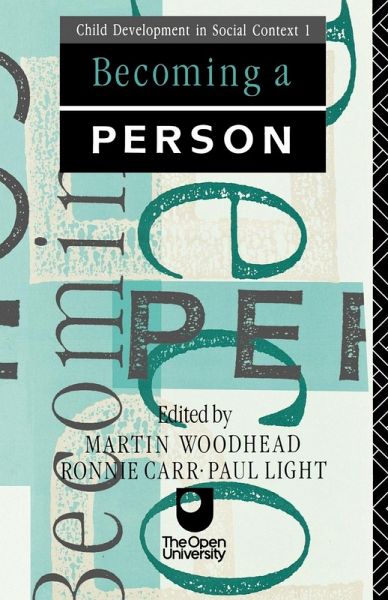
Becoming A Person
Versandkostenfrei!
Versandfertig in 1-2 Wochen
45,99 €
inkl. MwSt.

PAYBACK Punkte
23 °P sammeln!
First published in 1991. Routledge is an imprint of Taylor & Francis, an informa company.


Rechnungen
Bestellstatus
Retourenschein
Storno